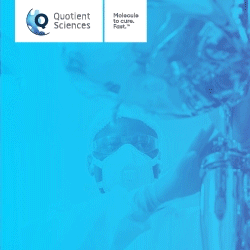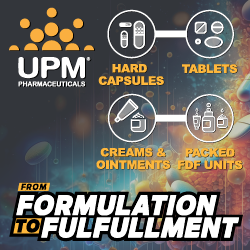Atara Bio to Present Results From Phase II Trial
Atara Biotherapeutics, Inc. recently announced Phase II results from its allogeneic T-cell product candidate, CMV-CTL, will be presented by its collaborating investigators at Memorial Sloan Kettering Cancer Center (MSK) during the 58th American Society of Hematology (ASH) Annual Meeting. The meeting will take place in San Diego, California from December 3-6, 2016.
The presentation will highlight additional efficacy and safety data from the company’s ongoing Phase II trial of CMV-CTL in the treatment of patients with refractory CMV infections that occur following HCT and includes results in patients with viral mutations conferring resistance to available antiviral therapies. CMV-CTL is an investigational therapy in which a healthy donor’s T-cells are stimulated to recognize CMV antigens, or viral proteins, expressed in the cells of patients infected with CMV.
“We are encouraged by the efficacy and safety results being reported at ASH on the use of CMV-CTL in patients with CMV mutations conferring resistance to antiviral therapy, and we look forward to our continued discussions with the FDA on late-stage development to support potential approval of our CMV-CTL product candidate,” said Chris Haqq MD, PhD, Executive Vice President of Research and Development and Chief Scientific Officer of Atara Bio. “The management of CMV is clinically challenging and outcomes can be poor after currently available anti-viral therapies have been exhausted or when these therapies are rendered ineffective by resistance mutations in the virus.”
In patients with weakened immune systems, CMV infection can result in a range of symptoms, including blindness, brain damage, difficulty breathing, or even death, depending on which organ is affected. T-cells are a critical component of the body’s immune system and can be harnessed to counteract viral infections and some cancers. By focusing the T-cells on specific proteins involved in cancers and infections, the power of the immune system can be employed to combat these diseases. Atara’s CMV-CTL utilizes a technology in which T-cells are collected from the blood of third-party donors and then exposed to CMV antigens. The resulting activated T-cells are then expanded, characterized, and stored for future therapeutic use in an appropriate partially human leukocyte antigen, or HLA, matched patient, providing an allogeneic, cellular therapeutic option for patients. In the context of CMV infection, Atara’s CMV-CTL finds the cells expressing CMV and kills them. CMV-CTL is currently being studied in an ongoing Phase 2 clinical trial.
Atara Bio’s cellular therapy platform provides healthy immune capability to a patient and arms the immune system to precisely target and combat disease. Cells derived from healthy donors are manufactured in advance and stored as inventory so that a customized unit of cells can be chosen for each patient. The cells are ready to infuse in approximately 3 to 5 days. Once administered, the cells home to their target, expand in vivo to eliminate diseased cells, and eventually recede. This versatile platform can be directed toward a broad array of disease-causing targets and has demonstrated clinical proof-of-concept across both viral and non-viral targets in conditions ranging from liquid and solid tumors to infectious and autoimmune diseases. The company’s lead product candidate derived from this platform is expected to enter pivotal trials in 2016. The company has pursued prospective feedback from health authorities on both manufacturing and clinical trial design. Its lead product candidate has the potential to be the first commercial allogeneic T-cell therapy for a viral target implicated in cancer.
Atara Biotherapeutics, Inc. is a biopharmaceutical company developing meaningful therapies for patients with severe and life-threatening diseases that have been underserved by scientific innovation, with an initial focus on immunotherapy and oncology. Atara Bio’s programs include T-cell product candidates and molecularly targeted product candidates. The T-cell product candidates include Epstein Barr virus targeted Cytotoxic T-cells (EBV-CTL), CMV-CTL, and Wilms Tumor 1 targeted Cytotoxic T-cells (WT1-CTL) and harness the power of the immune system to recognize and attack cancer cells and cells infected with certain viruses. The molecularly targeted product candidates include STM 434. These product candidates target activin and myostatin, members of the TGF-beta family of proteins, and have demonstrated the potential to have therapeutic benefit in a number of clinical indications.
Total Page Views: 1933












